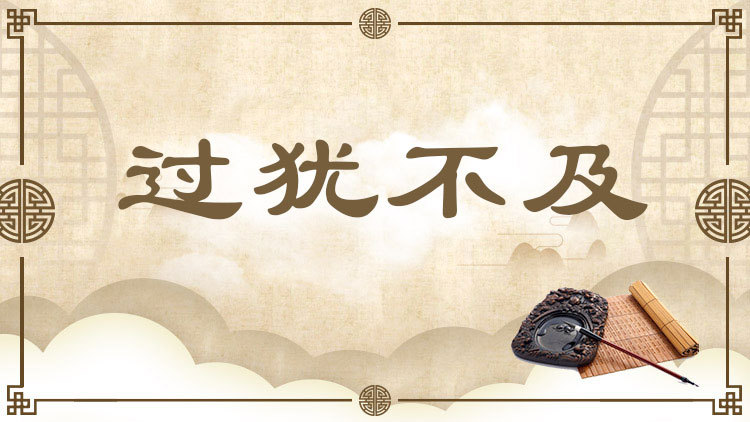过犹不及
Going Too Far Is as Bad as Falling Short

事物超过一定的标准和没有达到标准同样是不好的。儒家以礼作为个人言语行事及其与天地万物关系的标准,并根据礼的要求判断言行的“过”或“不及”。孔子分别用“过”与“不及”评价自己的两位学生,认为二者在未能达到礼的要求这一点上是一样的。如果能够按照礼的要求达到无过、无不及的中道,即具备了“中庸”的美德。
It is just as bad to go beyond a given standard as to fall short of it. Confucian scholars use rites as the standards both for individuals' words and actions, and for their relationship with everything in the world. They also judge people's words or actions against the requirements of the rites to see whether they have gone too far or fallen short. Confucius evaluated one of his students as "going too far" and another as "falling short," considering them to be the same in both failing the requirements set by the rites. If a person can follow the middle way by not going too far or falling short, then he has achieved the virtue of "the Golden Mean."
引例 Citation:
◎子贡问:“师与商也孰贤?”子曰:“师也过,商也不及。”曰:“然则师愈与?”子曰:“过犹不及。”(《论语·先进》)
子贡问孔子:“子张和子夏谁更好一些?”孔子说:“子张行事过度,而子夏常有不及。”子贡问:“那么子张这样更好一些吗?”孔子说:“过与不及一样,都是不好的。”
Zigong asked Confucius, "Which one is more virtuous, Zizhang or Zixia?" Confucius replied, "Zizhang tends to go too far, while Zixia often falls short." Zigong further asked, "In that case, is Zizhang better?" Confucius said, "Going too far is just as bad as falling short." (The Analects)
推荐:教育部 国家语委
供稿:北京外国语大学 外语教学与研究出版社
责任编辑:钱耐安





